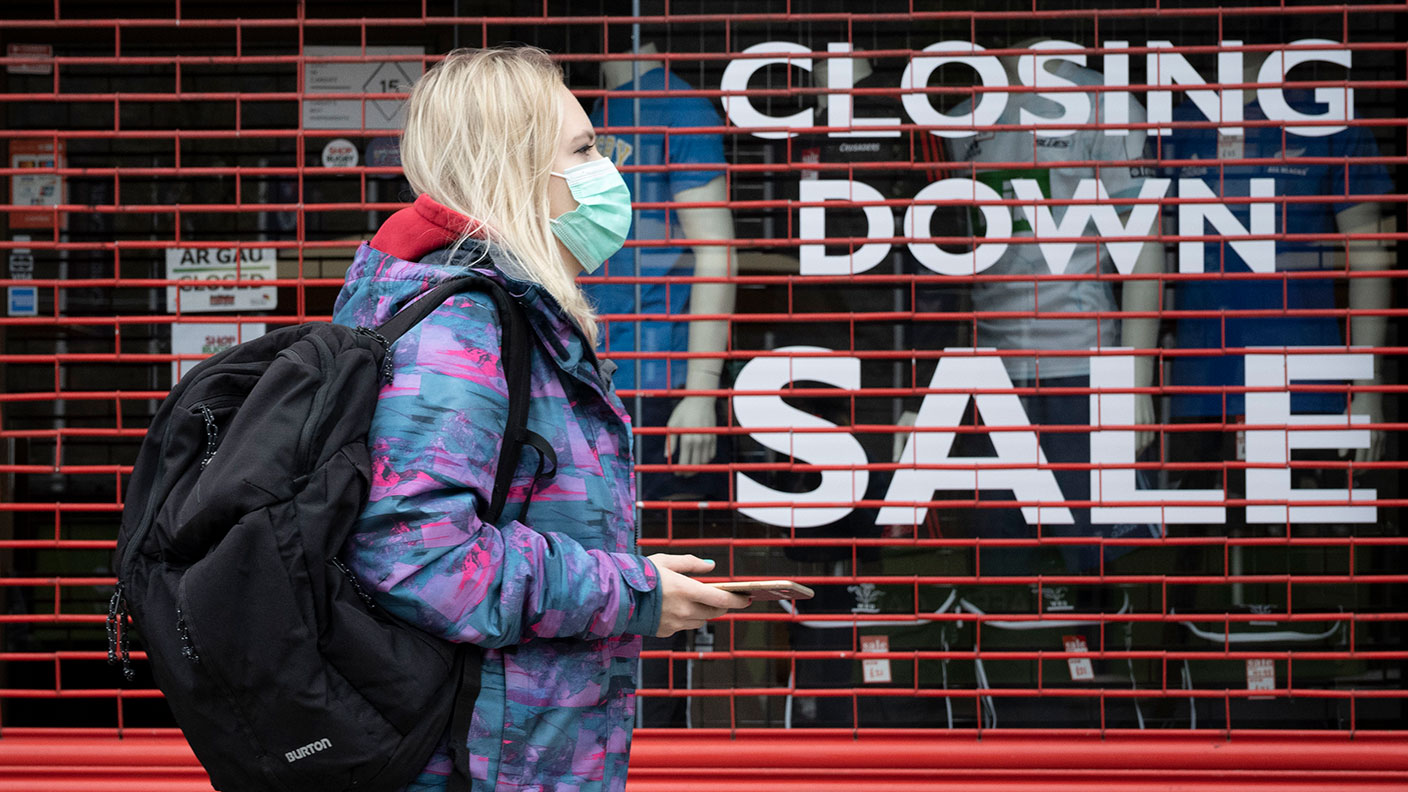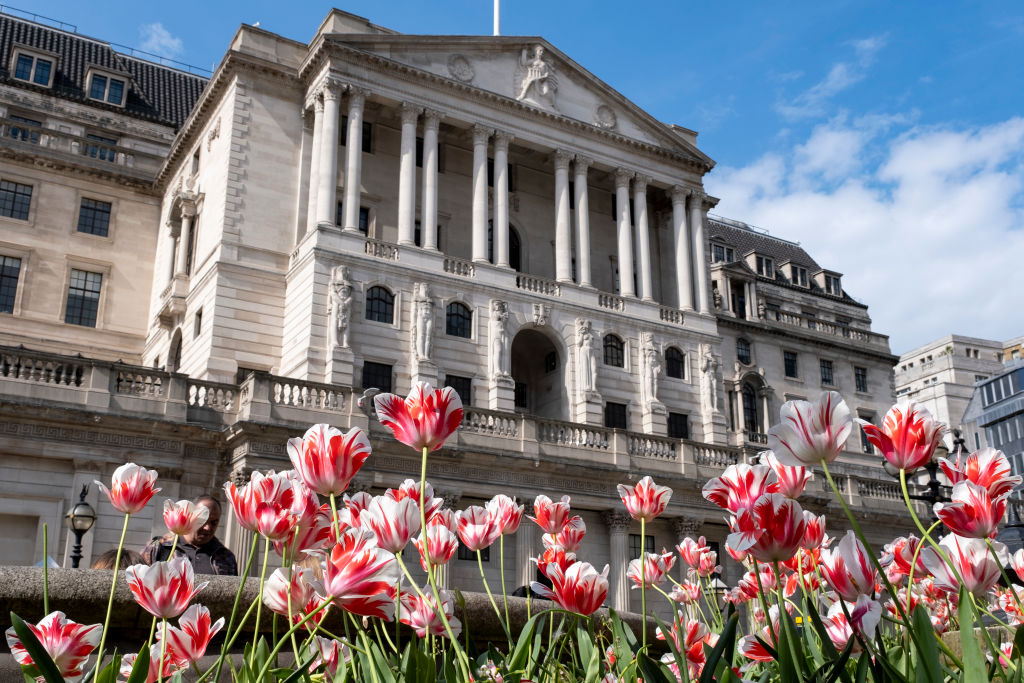Can the UK avoid a recession this year?
With household finances getting squeezed hard, the UK's consumption-led economy could be heading for a recession. John Stepek looks at what could go wrong for Britain – and what could go right.


Get the latest financial news, insights and expert analysis from our award-winning MoneyWeek team, to help you understand what really matters when it comes to your finances.
You are now subscribed
Your newsletter sign-up was successful
Want to add more newsletters?

Twice daily
MoneyWeek
Get the latest financial news, insights and expert analysis from our award-winning MoneyWeek team, to help you understand what really matters when it comes to your finances.

Four times a week
Look After My Bills
Sign up to our free money-saving newsletter, filled with the latest news and expert advice to help you find the best tips and deals for managing your bills. Start saving today!
Good news for the UK economy is thin on the ground right now.
Workers are facing a “historic shock” to incomes this year, as Bank of England boss Andrew Bailey pointed out yesterday.
Given that the UK economy is primarily driven by consumption, a big squeeze on consumers is bad news for growth.
MoneyWeek
Subscribe to MoneyWeek today and get your first six magazine issues absolutely FREE

Sign up to Money Morning
Don't miss the latest investment and personal finances news, market analysis, plus money-saving tips with our free twice-daily newsletter
Don't miss the latest investment and personal finances news, market analysis, plus money-saving tips with our free twice-daily newsletter
So with costs going relentlessly higher, can the UK avoid a recession this year?
The consumer is facing a huge squeeze this year
Roughly two-thirds of UK GDP is driven by consumption. So if consumers are facing the biggest drop in real disposable incomes (that is, incomes after inflation) since records began in 1948 (according to Pantheon Macroeconomics), it’s hard to be optimistic on the economy.
The Bank of England reckons that inflation will rise to around 8% in the next quarter. It could get even worse in the autumn, reports the FT.
This also means that the central bank’s hands are tied. If consumers are in trouble, the central bank’s traditional method of fixing this is to lower the cost of borrowing. That’s not possible with rising inflation, and Bailey wasn’t slow to point this out.
As he put it, growth and inflation are “pulling in different directions... I think it’s the biggest trade-off the Monetary Policy Committee has faced in its now approaching 25 years’ life.”
When you look at it like that, you also realise how easy the Bank of England had it over those 25 years. Yes, it faced a serious challenge in 2007 and 2008, but until now, every problem it has faced has had an obvious and politically easy solution – loosen monetary policy.
Stagflation is not amenable to that solution. Rising energy costs operate like tax rises – they squeeze companies and consumers and overall, are likely to crimp growth. But they also push up prices and raise inflation expectations.
I don’t personally think inflation expectations matter a jot – it’s more handwave-y nonsense to justify the underlying economic theory – but I’m not sitting on the MPC.
So that’s where we are. Inflation is going up, wages aren’t likely to keep up, and that means a squeeze on spending. How can the UK economy cope?
What could go right?
On the other side of all this, it’s worth remembering that – in aggregate – households still have a bigger pile of savings than is “normal”. As Pantheon points out, cash savings are more than £180bn above the levels they would have been “if the pre-Covid... trend had persisted”.
That’s money which can be drawn on to cushion the blow of rising costs and falling real wages. In other words, a slide in incomes doesn’t have to mean a corresponding slide in spending.
To be clear, this “extra” money is unevenly distributed. Some households have a lot and some have none. You can argue that the households which have most of this money are the ones who have the lower propensity to spend (the richer households). But economy-wide it’s still probably enough to keep things going.
On top of that, you have higher house prices (which means people can borrow more money against their property), and there is also more scope for additional credit card borrowing compared to historic levels.
House price growth might slow or even stall this year as the volume of credit available to buy houses flatlines. But mortgage interest rates are not rising fast.
And if the Bank of England stops raising rates earlier than markets currently expect (which seems likely, as long as it can find an excuse to do so), then it’s hard to see prices giving back much if any of their post-pandemic gains.
In other words, consumers have headroom should they choose to use it.
Consumer confidence is, of course, an issue, but it’s often overstated. If unemployment remains low and people retain their jobs, then their spending habits are unlikely to change radically.
The biggest unknown of all is energy prices. If petrol, gas and electricity prices start to come down rather than staying where they are or marching inexorably higher, it would make a big difference both to inflation and to household budgets.
Of all the variables to watch, this is probably the most important one. A drop in energy prices – or even a flattening – would ease some of the inflation pressure (meaning the Bank of England could relax a bit) and would also take some of the cost pressure off households.
So many variables affect this right now that it’s hard to make a call. But it’s certainly possible, for example, that the rise in the energy cap in October might be less dramatic than currently feared.
None of this is to say that the year ahead will be easy. And, as I’ve said before, with costs rising faster than your income (probably), the return on your investments (quite possibly), and your cash savings (100% raging certainty), you’re going to have to be much more attentive to both your investments and your personal finances in 2022.
However, a recession is by no means baked in just yet. So as always, don’t panic. And make sure you have some cash reserves in case you get a chance to buy when other people do.
Get the latest financial news, insights and expert analysis from our award-winning MoneyWeek team, to help you understand what really matters when it comes to your finances.

-
 Can mining stocks deliver golden gains?
Can mining stocks deliver golden gains?With gold and silver prices having outperformed the stock markets last year, mining stocks can be an effective, if volatile, means of gaining exposure
-
 8 ways the ‘sandwich generation’ can protect wealth
8 ways the ‘sandwich generation’ can protect wealthPeople squeezed between caring for ageing parents and adult children or younger grandchildren – known as the ‘sandwich generation’ – are at risk of neglecting their own financial planning. Here’s how to protect yourself and your loved ones’ wealth.
-
 Why Scotland's proposed government bonds are a terrible investment
Why Scotland's proposed government bonds are a terrible investmentOpinion Politicians in Scotland pushing for “kilts” think it will strengthen the case for independence and boost financial credibility. It's more likely to backfire
-
 How have central banks evolved in the last century – and are they still fit for purpose?
How have central banks evolved in the last century – and are they still fit for purpose?The rise to power and dominance of the central banks has been a key theme in MoneyWeek in its 25 years. Has their rule been benign?
-
 UK to have highest inflation among advanced economies this year and next, says IMF
UK to have highest inflation among advanced economies this year and next, says IMFThe International Monetary Fund (IMF) says it expects inflation to remain high in the UK, while lowering economic growth forecasts for 2026.
-
 Is Britain heading for a big debt crisis?
Is Britain heading for a big debt crisis?Opinion Things are not yet as bad as some reports have claimed. But they sure aren’t rosy either, says Julian Jessop
-
 'Britain is on the road to nowhere under Labour'
'Britain is on the road to nowhere under Labour'Opinion Britain's economy will shake off its torpor and grow robustly, but not under Keir Starmer's leadership, says Max King
-
 'Governments are launching an assault on the independence of central banks'
'Governments are launching an assault on the independence of central banks'Opinion Say goodbye to the era of central bank orthodoxy and hello to the new era of central bank dependency, says Jeremy McKeown
-
 Why investors can no longer trust traditional statistical indicators
Why investors can no longer trust traditional statistical indicatorsOpinion The statistical indicators and data investors have relied on for decades are no longer fit for purpose. It's time to move on, says Helen Thomas
-
 Live: Bank of England holds UK interest rates at 4.5%
Live: Bank of England holds UK interest rates at 4.5%The Bank of England voted to hold UK interest rates at their current level of 4.5% in March, as widely anticipated, after inflation rose to 3% in January